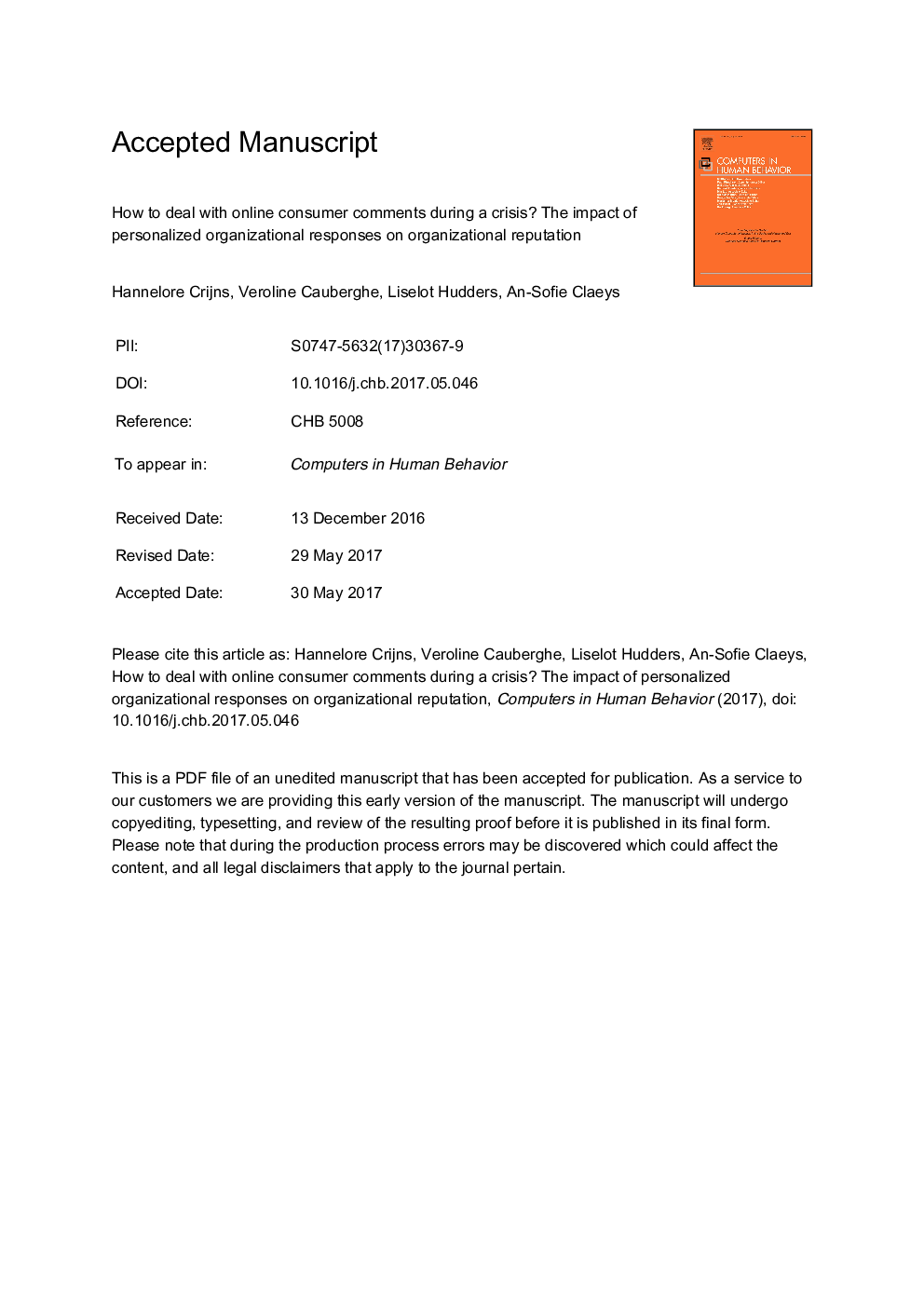| Article ID | Journal | Published Year | Pages | File Type |
|---|---|---|---|---|
| 4937530 | Computers in Human Behavior | 2017 | 45 Pages |
Abstract
Social media enable organizations in crisis to communicate regularly about crisis events to the public. Furthermore, consumers have the opportunity to respond to the organization's posts about the crisis. Little is known, however, about how organizations should deal with online consumer comments to such posts. Therefore, the current study examines how organizations in crisis best deal with positive and negative consumer comments to an organizational crisis-related post. A 2 (tone of voice organizational response: personalized versus corporate) x 2 (consumer comment valence: positive versus negative) between-subjects experimental design (NÂ =Â 264) was used to examine if a personalized organizational response to consumer comments is advisable to protect organizational reputation, and whether or not the desirability of it depends on the valence of these comments. Results show that a personalized organizational response to a consumer comment on an organizational crisis message post beneficially affects organizational reputation through higher perceptions of conversational human voice (CHV) and sequentially lower consumer skepticism. However, the effect of response personalization is not unanimously positive. When consumer comments are positive, a personalized organizational response damages organizational reputation due to increased consumer skepticism. The positive effect of a personalized response on organizational reputation through CHV disappeared when responding to positive consumer comments. When consumer reactions are negative, however, personalizing the organizational response is beneficial for organizational reputation due to increased perceptions of CHV.
Related Topics
Physical Sciences and Engineering
Computer Science
Computer Science Applications
Authors
Hannelore Crijns, Veroline Cauberghe, Liselot Hudders, An-Sofie Claeys,
